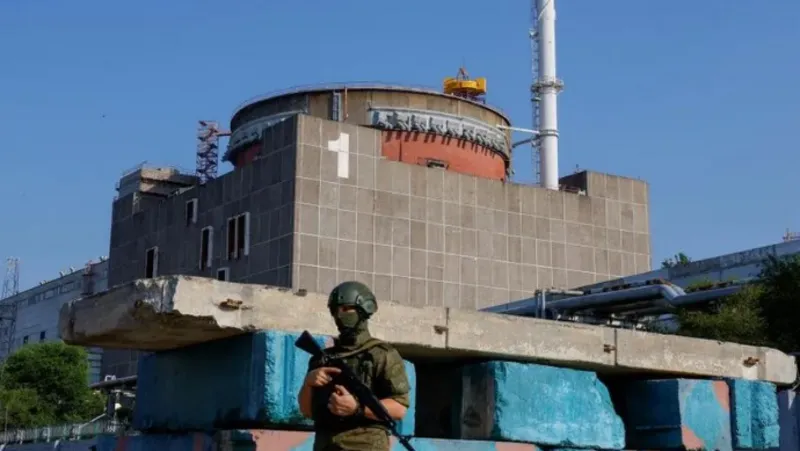Zaporizhzhia nuclear safety deteriorating, says UN
The nuclear safety situation at the Zaporizhzhia power plant in Russian-occupied Ukraine is deteriorating, the head of the UN's nuclear watchdog has said, following a drone strike near the site's perimeter.

Rafael Grossi, head of the International Atomic Energy Agency (IAEA), said he remained "extremely concerned" and called for "maximum restraint from all sides" to protect the plant.
The agency said the impact of the strike was on a road just outside the facility - close to essential water sprinkler ponds and about 100m from the only remaining high-voltage line.
The plant was seized by Russia's forces early in the war and has come under repeated attacks which both sides have blamed the other for.
'Russians are worried, but trust Putin to deliver peace'
Last week, Kyiv and Moscow traded blame after a fire broke out in one of the plant's cooling towers.
The IAEA did not say who carried out Saturday's strike, but its team stationed at Zaporizhzhia said the damage seemed to have been caused by a drone carrying an explosive.
"The team has heard frequent explosions, repetitive heavy machine gun and rifle fire and artillery at various distances from the plant," the agency said in a statement.
The plant has not produced power in more than two years and all six reactors have been in cold shutdown since April.
Russia launched a full-scale invasion of its neighbour in February 2022 and has been making slow progress recently in seizing more territory in eastern Ukraine.
However, it was shocked when Ukrainian troops penetrated into its Kursk region where they have been consolidating positions for nearly two weeks.
Thousands of Russians have been evacuated from the area.
On Sunday, the head of the Ukrainian air force, Mykola Oleshchuk, said his forces had destroyed a second bridge in the Kursk region "depriving the enemy of its logistical capabilities".
Earlier this week, Ukraine destroyed a bridge over the river Seym which had been used by the Kremlin to supply its troops.
It is the first time foreign troops have been on Russian soil since World War Two.
-BBC





